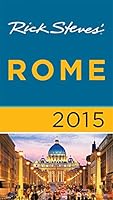Sublime
An inspiration engine for ideas
One of the most famed plebeian victories came in 326 BCE, when the system of enslavement for debt was abolished, establishing the principle that the liberty of a Roman citizen was an inalienable right.
Mary Beard • SPQR

Alchemy and Artificial Intelligence
rand.orgYour Guide to Rome
nytimes.com
And it is easy to imagine the widespread pleasure when in 167 BCE Rome became a tax-free state: the treasury was so overflowing – thanks, in particular, to the spoils from the recent victory over Macedon – that direct taxation of Roman citizens was suspended except in emergencies, although they remained liable to a range of other levies, such as
... See moreMary Beard • SPQR
The Roman plebs, robbed of their lands, were no longer able to support themselves. The patricians calculated that, by the sacrifice of a little money, they could bring this poor class into their hands. The plebeian began to borrow. In borrowing, he gave himself up to the creditor — sold himself. It was so much a sale that it was a transaction
... See moreNuma Denis Fustel de Coulanges • The Ancient City: A Study of the Religion, Laws, and Institutions of Greece and Rome (Illustrated)
Whatever the causes of the Social War, the effects of the legislation of 90 and 89 BCE that extended full citizenship to most of the peninsula were dramatic. Italy was now the closest thing to a nation state that the classical world ever knew, and the principle we glimpsed centuries earlier that ‘Romans’ could have dual citizenship and two civic
... See moreMary Beard • SPQR
The effect of this mixing of the most diverse nations was, that from the beginning Rome was related to all the peoples that it knew. It could call itself Latin with the Latins, Sabine with the Sabines, Etruscan with the Etruscans, and Greek with the Greeks.